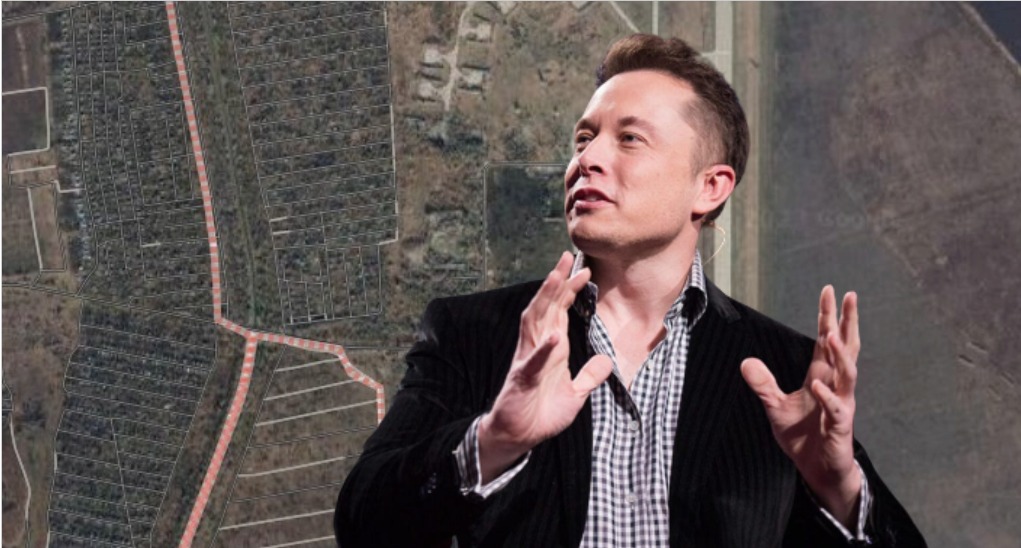Ukraine has reportedly acquired 5,000 Starlink terminals from Poland, which Kyiv had previously used to guide its UAVs and battlefield military communications. The development comes three months after SpaceX founder Elon Musk denied Starlink’s coverage over Crimea for Ukraine to attack Russia’s Black Sea Fleet.
Ukraine’s unmanned naval kamikaze boat had targeted Russia’s Black Sea Fleet (BSF) anchored at Sevastopol, successfully hitting warships and the headquarters earlier this year.
On previous occasions, Musk had expressed reservations over using the Starlink satellite internet service for military purposes. He had warned about escalation that could lead to a larger war.
He also pointed to Russia’s electronic warfare (EW) capability that threatened his satellites, complained about dues since Ukraine was using the service for free, and supported Russia’s claim on Crimea while proposing a peace plan to end the war, which drew backlash from Ukraine’s citizens and activists opposed to Russia.
Reports said the Starlink terminals, this time, will be used for civilian purposes, including providing internet for households in areas destroyed in the war and public services like hospitals and schools.
Starlink’s military use by Ukraine might significantly reduce over time, if not ultimately end, given the news about Musk’s resistance and Russia’s EW that successfully jammed the network’s signals in the past.
Starlink For Civilian Use Only
According to Ukrainska Pravda, the 5,000 Starlink terminals are part of 19,500 that Poland is expected to transfer to Ukraine. Whether this was the first lot or the concluding tranche is unclear.
However, Ukraine’s Ministry of Digital Transformation reveals that the new Starlink terminals will help “restore a connection in the liberated territories and ensure the operation of schools, medical facilities, and the energy sector.”
There are about 47,000 Starlink terminals already in operation in Ukraine. Some have been delivered to the ‘invincibility centers’ (heated premises stocked with food and power banks to assist residents facing power cuts).
This has allowed “thousands of Ukrainians…to use high-quality internet and stay connected” even during blackouts. “We are grateful to our partners who help Ukraine. We are grateful to the government and Poland’s Ministry of Digitalization and the National Institute of Communications for their strong support in ensuring communication in Ukraine,” the ministry said in a statement.
Musk Opposed Using Starlink Against Russia
SpaceX CEO Elon Musk had at first claimed persistent Russian efforts to jam his satellite network. This was after Russia had begun expressing discomfort about Starlink being used for Ukrainian military communications and guiding its drones.
Moscow had presumably begun disrupting and hacking the satellite internet service in Ukraine by employing its formidable electronic warfare (EW) capabilities. A subsequent EurAsian Times report analyzed what technique Russia employed to jam Starlink, using its Tobol EW system.
Musk later made statements supporting Russia’s position in the war, particularly on Crimea, advocating a peace plan with Moscow. He also threatened to suspend Starlink services in Ukraine over mounting dues his company could no longer sustain, suggesting the Pentagon should foot the bill.
By February this year, he took measures that “limited” Ukraine’s ability to use Starlink for military purposes. Finally, in early September, he refused Ukraine’s request to activate Starlink services in Crimea not to aid Ukrainian kamikaze drone boat attacks on Russia’s Black Sea Fleet based at Sevastopol. When the drone strikes began in late 2022, captured samples of some boats showed the flat Starlink dish on the vessel’s upper body.
Musk had explained that he refused this request because “Starlink’s terms of service explicitly prohibit its use for offensive military actions.” These revelations were made in an upcoming biography of the tech tycoon by Walter Isaacson.

The book claims that even Ukraine’s kamikaze Unmanned Surface Vessel (USV) strike in late 2022 “lost connectivity as they approached” BSF warships in Sevastopol and “posed no threat.”
“Musk’s decision to deactivate Starlink during this incident reportedly stemmed from his fear that Russia might respond with nuclear weapons. This concern was driven by his conversations with senior Russian officials and his apprehensions about a ‘mini-Pearl Harbor’ scenario,” said a report in the Hindustan Times.
Ukraine also mistakenly believed that Starlink coverage extended to Crimea and approached Musk to enable it for their planned drone attack, which he declined. Musk reasoned that neither he nor anyone at SpaceX ever promised coverage over Crimea, as Starlink’s terms of service prohibit Starlink from being used for offensive military action. “We are a civilian system, so they were again asking for something that was expressly prohibited,” Musk was quoted.
Musk & Putin’s Secret Signaling
While Musk’s motivations behind dithering to support Ukraine and making statements that are in direct contravention to the US position on the war are not known, it can be said that he feared a security threat to his technology business from Russian EW, and used his utterances as a signal to Putin.
It conveyed that while he does not back the US and NATO participation in the war, neither can he openly decline his services to them and is compelled by business-political compulsions. Vladimir Putin seems to have read the message and has not launched large-scale devastating jamming attacks on Starlink — an ability his military and scientists easily possess.
Such a crippling cyber strike on a global civilian technology company will have also turned the narrative in Washington’s favor, which would have further intensified the severe sanctions on Russia’s commerce and industry.
The cascading effect on Russia’s diplomacy with developing nations (where Starlink is used) and the economic impact due to an image created by militarily attacking international business for geopolitical goals will have been taken into account by Moscow.
Moreover, Russia will have considered that not all of Starlink’s services in Ukraine are used for military purposes, except those around the frontline and Crimea. Thus, employing EW to disable the satellite internet on an entire country thoroughly would be technically tricky and disproportionately severe.
- The author can be reached at satamp@gmail.com
- Follow EurAsian Times on Google News